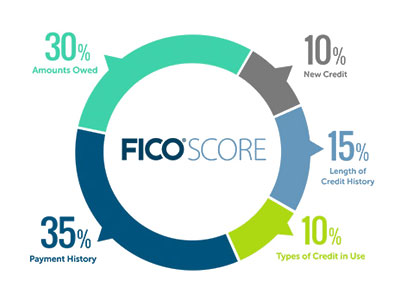How FICO Identifies Tenant Risk

Many landlords rely upon rental scores to estimate the relative financial risk of leasing an apartment. In addition to estimating risk, rental scores are an objective and consistent way of reviewing relevant applicant information, and help speed the application approval process.
Rental scoring systems assign points to certain factors identified as having a statistical correlation to future financial lease performance. A rental score results from a mathematical analysis of information found in a credit report, application, and previous rental history. Such information may include bill-pay history, number and type of accounts, collection actions, outstanding debt, income, and the number of inquiries in the applicant's credit report. The final number, or rental score, represents an estimated level of risk as compared to the performance of other consumers in a range of scores.
Food for Thought:
With FICO scores ranging from 300-850, the higher the prospect scores, the less inherent risk of default. Nevertheless, other factors are critical to rental decisions, including:
- Rent to Income Ratio
- Eviction and Other Civil Filings
- Payment Patterns
Because a rental score is based on real data and statistics, it is more reliable than many other subjective methods of evaluating applicant information. Rental scoring treats all applicants consistently and impartially. Additionally, a rental score never uses characteristics like Race, Color, Sex, Familial Status, Handicap, National Origin, or Religion, as factors.
About Real ID Scoring Models
Real ID currently offers nearly 100 decision criteria levels to streamline the tenant screening process. Decision tables provide a real solution.
- Compliant with Fair Housing
- Reduce Future Collection Accounts



